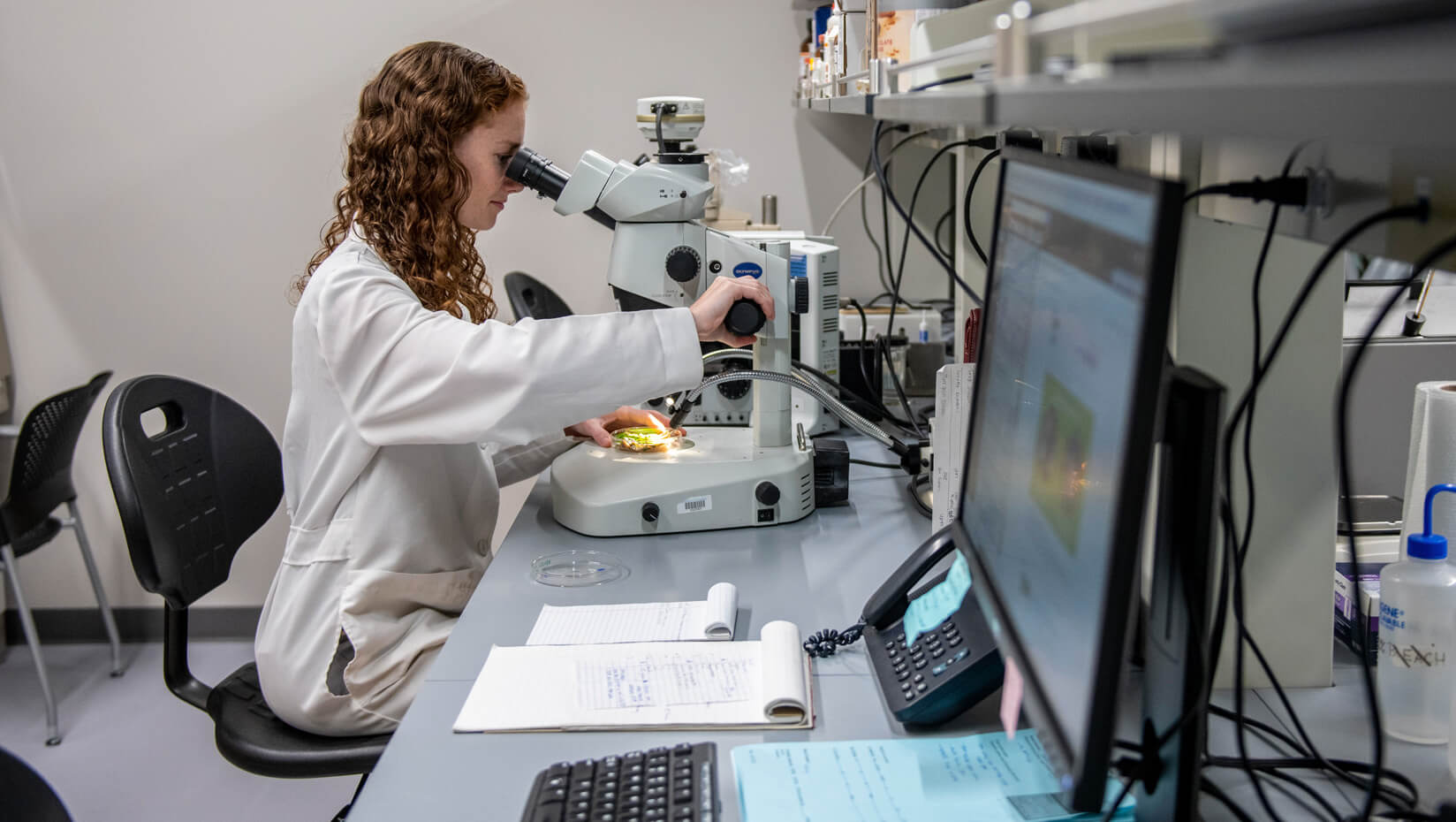
Open house for the new UMaine Extension Diagnostic and Research Lab June 22
An open house for the new University of Maine Cooperative Extension Diagnostic and Research Laboratory will be held from 10 a.m. to 2 p.m. June 22.
The facility at 17 Godfrey Drive in Orono is the new home of UMaine Extension’s Veterinary Diagnostics Lab, including the Aquatic Animal Health Lab, and the Pest Management Unit — the Tick Lab, Insect and Arthropod Identification Lab, Plant Disease Diagnostic Lab, and Integrated Pest Management and Pesticide Safety Education Programs.
The open house will feature tours of the facilities and opportunities to speak with UMaine Extension scientists. It is not recommended for children under 12.
The event will be one of the only opportunities for the public to see many aspects of this new facility, including the state-of-the-art diagnostic equipment. The biosecure laboratories also will be on display. Once fully occupied and operational at the end of this summer, the UMaine Extension Diagnostic and Research Laboratory research areas will be accessible only to authorized personnel.
The UMaine Extension Diagnostic and Research Laboratory was made possible by an $8 million bond approved by Maine voters in 2014. Its focus is support of the state’s natural resource-based industries, and monitoring human health risks.
In this facility, UMaine Extension scientists will conduct research on ticks, mosquitoes and other insect pests, as well as plant diseases, including those critical to the potato and wild blueberry industries.
Today, UMaine Extension provides the only tick identification service in the state. With this new lab, it will offer the only public resource for tick pathogen testing in Maine.
The Veterinary Diagnostics Lab also will have expanded capabilities, including the space and equipment to do necropsies on full-size large animals such as cows and moose.
The $2.1 million Aquatic Animal Health Lab, funded through a separate marine bond, will support the finfish and shellfish industry, including aquaculture.
The work in the Diagnostic and Research Laboratory builds on UMaine Extension’s role as a trusted source of expert advice, enriching programs and reliable, research-based information for the state. Research by UMaine Extension scientists often involves undergraduate and graduate students, advancing the university’s teaching mission.
“With all these capabilities under one roof, this facility is truly unlike any other in the world,” says UMaine Extension director John Rebar. “UMaine scientific experts will have the new facilities and equipment to expand their educational outreach and research dedicated to protecting Maine people and our economy.
“Much of the work in this state-of-the-art facility protects the agricultural economy by providing cost-effective, rapid diagnostic services and testing to detect the presence of disease threats, and education on risk management,” Rebar says. “Our research also helps protect human health and food safety through the testing for the presence of disease pathogens, and provides education on how to reduce the risk of disease transmission.”
More information about the new facility is online.
Contact: Margaret Nagle, 207.581.3745
